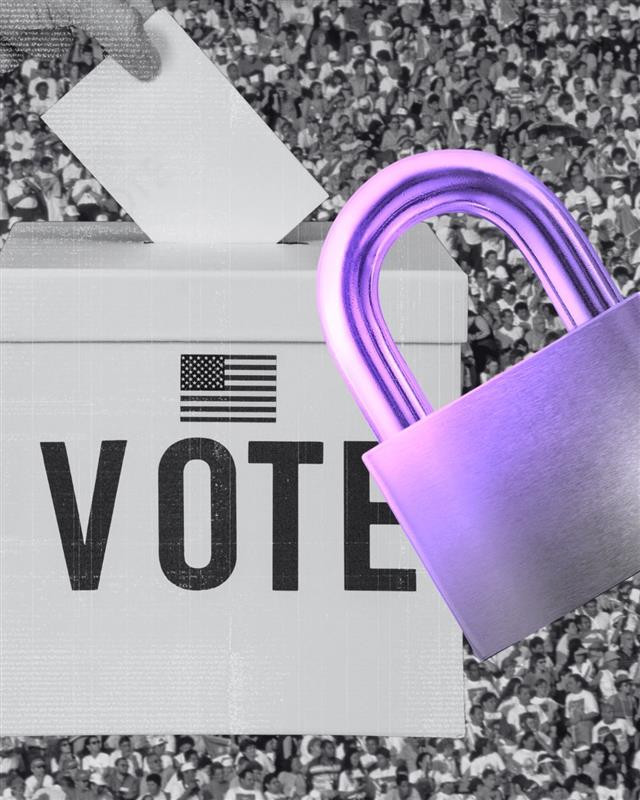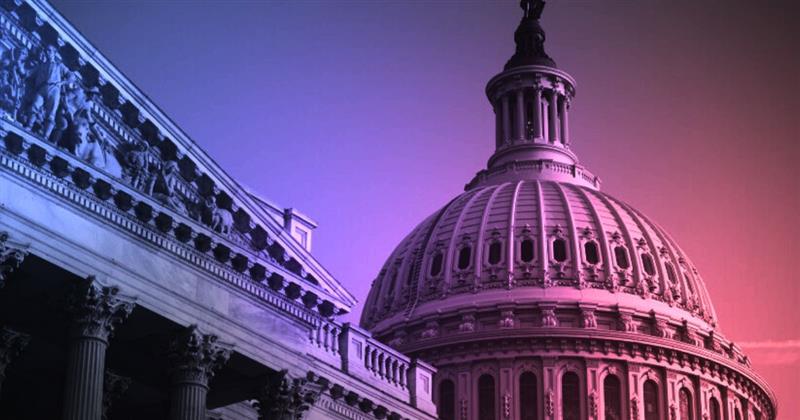The Independent Center fact-checks some common myths about being an independent voter and voting independently.
Myth #1: You must vote third party to be independent.
FACT: You don't have to vote for a third party to be an independent voter. Being an independent voter means you aren't beholden to any particular political party. You vote your conscience based on the candidates and the issues. Sometimes, you vote for a Democrat, sometimes for a Republican, sometimes for a write-in or another party. Sometimes, you might skip an office entirely because none of the available options are satisfactory. You are voting based on your principles, not based on party membership.
Myth #2: Independent voters don't vote straight ticket (sometimes).
FACT: Why not? Most states no longer have a ballot option to vote straight ticket, meaning one button votes every office for one party. Other states still have this option. You can see more here from NCSL. That said, you can still be an independent voter and vote entirely for one party in an election. Depending on where you live, your ballot options may be limited due to gerrymandering, or you may live in an area where one party has an overwhelming presence without relying on gerrymandering. In these cases, it’s possible you would want to vote straight ticket against the party in control – if you felt they needed to be held to account. Or, on the other hand, you could vote straight ticket FOR the party in control – if you felt they were doing a good job. Or, you could vote straight ticket for an entirely different reason. Either way, independent voters can vote straight ticket and remain independent of both major parties.
Myth #3: Independent voters can't vote in a primary election.
FACT: Independent voters can always vote in a primary election. However, it may require some extra effort in some states. States with an open primary are the easiest because the state doesn't limit who can vote in which primary. States with closed primaries may require you to register as a partisan to participate. Some states are semi-open, others are semi-closed. Some are top two or top four. See our state resources for more information.
Myth #4: Independent voters must vote for an independent.
FACT: If the independent or unaffiliated candidate on the ballot floats your boat, by all means, vote for that candidate. But if you like some candidates in one party for some offices or candidates in the other party for other offices, that's okay too. The key is that you evaluate each candidate for each office based on your priorities, not the priorities of a party platform. As an independent voter, YOU hold the power.
Myth #5: Independent voters must vote for the Independent Party.
FACT: The Independent Party is like Schrödinger's cat; it exists and doesn't exist simultaneously. Some parties have organized as "The Independent Party." The most recent example would be the organization that Robert Kennedy Jr.'s presidential campaign built. However, those party organizations only exist in a few states. Other states, like Georgia, only recognize the Republican, Democratic, and Libertarian parties. The key to being an Independent Voter is to vote your conscience, not because some party boss told you to vote one particular way.
Myth #6: Independent voters don't vote.
FACT: Not only do independents vote, they decide elections. They vote at twice the rate of partisans. Exit polling from the 2024 presidential election shows that independent participation outnumbered Democrats by 3 points and fell 1 point shy of Republican turnout. To borrow from George W. Bush, independent voters are the 'deciders.'
Myth #7: Independent voters are uninformed or disengaged.
FACT: Independent voters are very informed and take a nuanced approach to their policy preferences. Independents see not only issues but also how individual issues connect to other policy areas. In many policy areas, they prefer more choices, so there is more competition and the ability to choose what’s best for themselves and their families. To go in-depth on this issue, check out Part 2 of our analysis of independent voters.
Myth #8: Independent voters are centrist or moderate.
FACT: They can be, but they don't have to be. Our research at the Independent Center shows that "Independent voters consistently rated key economic issues like affordability, inflation, taxes, and the economy as the most important factors in determining their vote." We found independent voters are the most cohesive voting bloc – meaning, they hold the most internally consistent worldview. Through our research, we’ve found that their worldview is fiscally focused and socially tolerant. In short, they demand choice and tolerance. Independent voters aren't into the fear-mongering Republicans and Democrats consistently sell us. It's not so much that they are centrists or moderates. They just want to be able to reach the American Dream. But they also worry that they may never achieve that dream.


.jpeg)


.jpg)